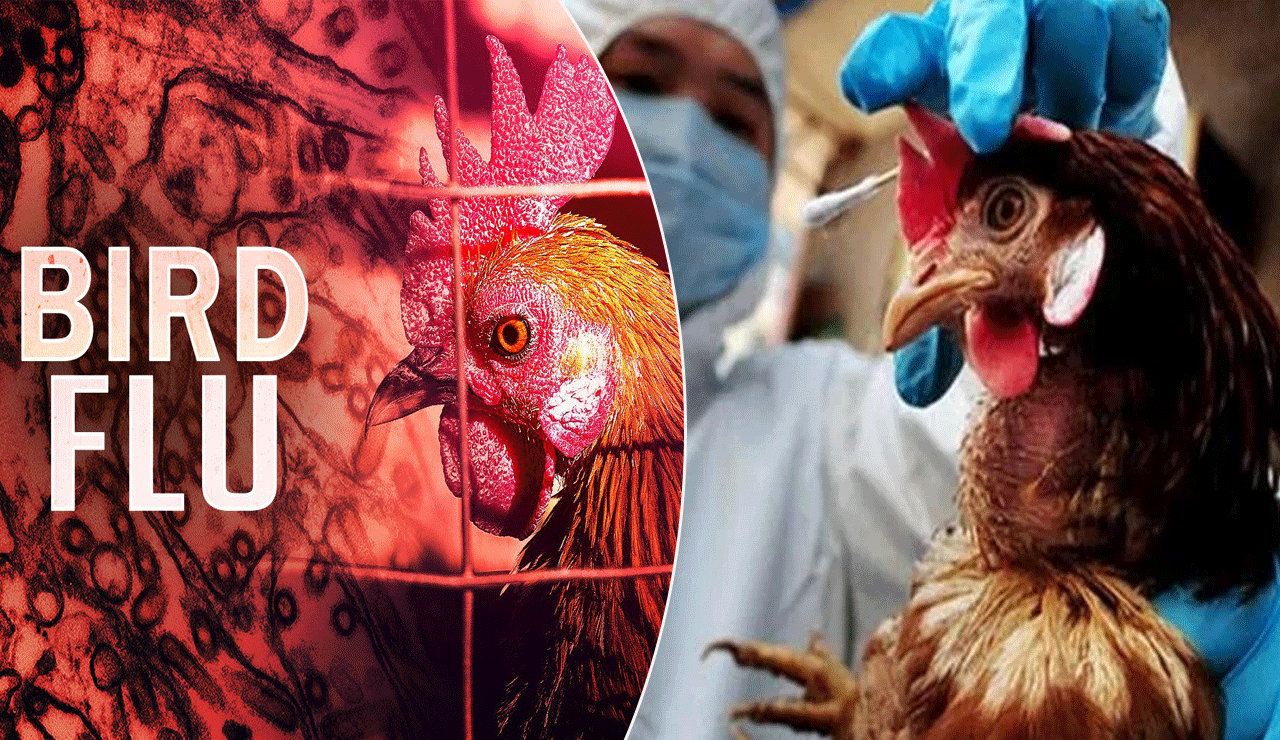India Strengthens Battle Against Bird Flu with New Three-Pronged Strategy
In response to recent outbreaks of Avian Influenza (Bird Flu) across India, the Department of Animal Husbandry & Dairying (DAHD) under the Ministry of Fisheries, Animal Husbandry, and Dairying convened a high-level meeting to implement proactive measures.

New Delhi: In response to recent outbreaks of Avian Influenza (Bird Flu) across India, the Department of Animal Husbandry & Dairying (DAHD) under the Ministry of Fisheries, Animal Husbandry, and Dairying convened a high-level meeting to implement proactive measures.
Table of Contents
The meeting, chaired by Smt. Alka Upadhyaya, Secretary of DAHD, brought together key stakeholders, including scientists, poultry industry experts, and government officials, to address the growing public health and economic concerns.
Three-Pronged Strategy to Combat Bird Flu Outbreaks
To control the spread of Avian Influenza in India, a comprehensive three-pronged strategy was adopted:
1. Stricter Biosecurity Measures
All poultry farms are required to enforce stringent hygiene and biosecurity protocols. These include:
- Restricted access to farm premises
- Disinfection of equipment and vehicles
- Monitoring the movement of animals and personnel
The goal is to minimize virus transmission and safeguard both poultry and human health.
2. Strengthened Surveillance Systems
Surveillance will be intensified in high-risk zones to enable early detection and containment. The use of advanced scientific tools for tracking outbreaks was emphasized for better disease management and quicker response times.
3. Mandatory Registration of Poultry Farms
All poultry farms must register with their respective state animal husbandry departments within one month. This move will:
- Enable real-time disease monitoring
- Help authorities track outbreaks efficiently
- Ensure timely preventive action
Stakeholders have been urged to comply fully with the directive.
Approval of H9N2 Vaccine: A Key Milestone
A major announcement during the meeting was the approval of the H9N2 Low Pathogenic Avian Influenza (LPAI) vaccine, developed by ICAR-NIHSAD, Bhopal. The vaccine is now commercially available and will be evaluated through a national study to assess its effectiveness in preventing future LPAI outbreaks.
Consideration of HPAI Vaccine Under Scientific Revie
While the industry pushed for approval of a Highly Pathogenic Avian Influenza (HPAI) vaccine, scientists raised concerns over current vaccine limitations, noting they only reduce virus shedding and do not guarantee full immunity. Further scientific evaluations are underway before any policy decision is made.
Focus on Indigenous Vaccine Development
To address India-specific challenges, the DAHD is investing in indigenous vaccine development for HPAI. This initiative aims to produce effective and affordable vaccines tailored to Indian poultry farming conditions, combining global best practices with local expertise.
Strong Industry and Government Collaboration
The meeting featured collaboration from:
- Poultry vaccine manufacturers
- National poultry industry associations
- Key ICAR institutions: ICAR-NIHSAD, ICAR-IVRI, ICAR-CARI, ICAR-NIVEDI, and ICAR-DPR
This public-private partnership is crucial in ensuring long-term disease control, protecting India’s poultry economy, and strengthening national food security.
